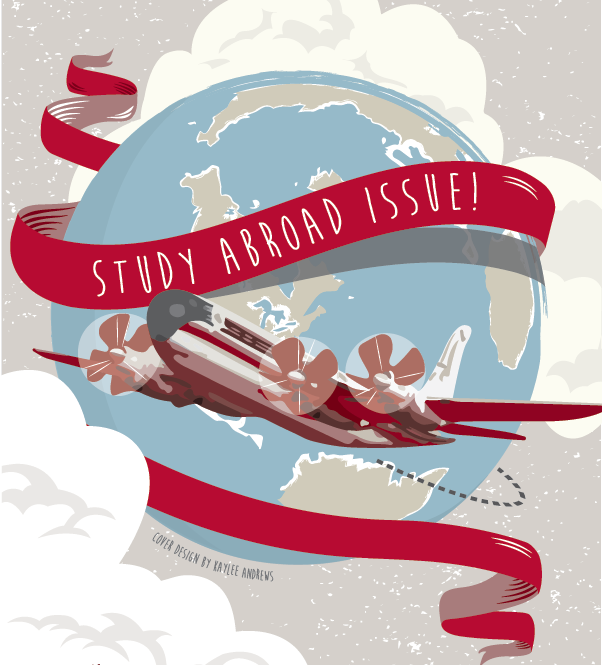Studying abroad is an enriching component from which all students can benefit. However, contrary to popular belief, it isn’t a vacation. It’s an opportunity for students to broaden his or her horizons and develop a different perspective on education.
San Diego State offers a plethora of degrees, and some actually require students to study abroad.
This requirement provides an avenue for travel that a student needs to substantiate their degree and be a competitive contender post-graduation.
A common misconception about studying abroad is its price and availability.
Students entering a certain major requiring a study abroad experience may feel burdened to shell out money for the requirement.
However, there’s a big difference between studying and immersing oneself in a certain major.
The Latin American major is one of several programs that require studying abroad. Director of the Center for Latin American Studies Ramona Pérez believes students should have a cultural connection obtained through international programs.
“If you’re saying you have a degree in a specific region, and this isn’t ethnic studies, this is the actual expertise of that region, and you don’t have that study abroad experience, it’s kind of silly,” Pérez said.
The Latin American Studies department not only understands the importance of creating that bridge between cultures, but also understands that some students may not have the resources to study abroad.
The department offers a program that accommodates students with an abroad hybrid class in Mexico. SDSU’s advantageous location, close to the Mexican border, means an international program is more readily accessible and doesn’t require students to fly somewhere.
Even if a student wasn’t studying a specific region, the main point of study abroad requirements is to create a collaborative process overseas and to promote student networking.
The homeland security graduate program aims to do just that. Homeland security isn’t just worrying about the well being and safety of the U.S. In order to better understand local, national and even global emergencies, experts look at different regions holistically. Studying abroad not only provides these students the opportunity to gain first hand
experience in such events, but it also allows a full submersion into a culture and the creation of a human beacon between countries in times of crises.
“There is a classic saying, ‘During a time of disaster is the wrong time to exchange business cards’ and so if you don’t know people, you really can’t properly respond in times like that,” Homeland Security graduate program Director Eric Frost said.
The College of Health and Human Services International Programs Coordinator Roxanne Riedel and CHHS Associate Dean Larry Verity are also huge supporters of studying abroad.
“There are various opportunities, regardless of where you go where students can experience, observe and ask questions about the different countries they’re in,” Verity said. “Our students are oriented in a professional way toward health, health services as a profession. There’s quite a lot to gain from going across borders.”
Riedel’s plays a major role in the college by helping students find the right study abroad program.
The college as a whole has more than one major and Riedel helps students find a program that not only he or she will enjoy, but one that a student will gain the most experience and insight into a certain country.
These are only a few of the vast number of programs that require studying abroad, yet the same message still rings true for all.
When it comes to these majors (and several others), going abroad is a necessary component in solidifying a student’s knowledge in his or her field of study.
Travel can be enriching for all, but most especially students in programs such as these.
It is not only vital for these degrees, but it is the difference between a student being educated and a student being knowledgeable.







